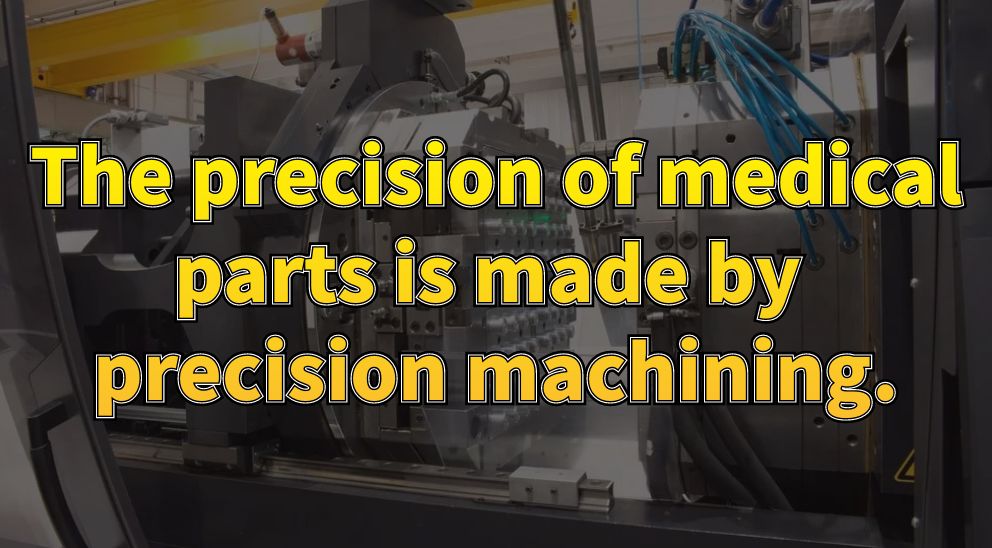A medical machining sector plays a crucial part in the production of medical devices all over the world. Medical machining companies provide services that cover a wide spectrum of capabilities, from selecting the right material for an application, to high-volume production runs, to prototypes, quality control as well as the development of products. Contrary to other machining options components and parts used that are used in medical applications require precision manufacturing techniques that require confirmation and verification through each step of the production process. This is due in large part to the character of products manufactured in the manufacturing industry.

Medical devices must comply with stringent regulations and are made according to precise specifications. For any medical use components and parts must not only last but also be manufactured with precision and accuracy to meet demands. Manufacturers employ high-precision CNC cutting to overcome the difficulties of making extremely precise medical equipment, while maintaining the highest level of uniformity. Every part or component has to be reliable, accurate and safe. They also need to be approved for single-use or for long-term use.
In any case, precise machining is essential to make the most durable part. Precision machining utilizes engineering software that uses CAD/CAM to create products and manage machinery and equipment. Die cutting laser cutters, CNC routers and other tools for precision are capable of producing intricate and complex designs previously unimaginable. offer additional precise tolerances when needed and also dimensional stability with exceptional precision and repeatability, whether for lengthy or short production runs.
The selection of the material is vital when it comes to medical machining. Medical components and components make use of an array of designed materials that are suitable to be used in medical and health-related uses. The most prominent of these are medical-grade plastics, which are specifically designed to be used within the healthcare sector. These types of plastics have properties that make their application for medical devices ideal--antimicrobial, durability, elasticity, high tensile strength, and so on. Common thermoset or thermoplastic substances used in medical device applications are the polycarbonate Teflon, PVC, polypropylene, as well as silicone (among numerous other types). Applications for medical-grade plastics are limitless and provide an array of lower costs and manufactureability. They've long been used to replace devices and equipment that were once constructed from such materials as steel, ceramics, or glass.
To warrant the highest standards of production and create the best quality components Medical machining services incorporate quality control systems throughout the production process. This includes receiving materials and manufacturing, FAI (First Article of Inspection) Engineering and operational services, and quality control systems that comply to, report on, and comply with ISO 9001 standards. Quality control processes increase on the products and services offered to clients, ensure the traceability of manufacturing and testing processes, ensure high levels of uniformity, rise process validation, warrant that the products developed be in compliance with regulatory standards and have approval throughout the process of prototyping.
Another important role for medical machine services is the role it plays in prototyping and development. Prototyping is an essential element for any product's development, and is crucial when it comes to medical machining. Prototypes for devices can be used to create visual, test, and examine the performance of products and proof of concepts through every stage of development. Additionally medical devices have to follow strict process of validation and verification during each stage of development in order to receive FDA approval. These stages of development are called process validation. FDA describes process validation as the ability to prove through "objective confirmation that a procedure consistently outcome in a product that is in compliance with its specifications." Prototyping and manufacturing capabilities for medical machining allow engineers and designers to make any modifications and modifications that are required throughout the process to warrant that the device has passed the requirements for validation and verification prior to the submission for submission to FDA.
Precision machining of medical equipment is crucial to the manufacturing of high-quality, durable medical devices. Medical machining services use CNC machines as well as other techniques to make extremely intricate components and parts that are manufactured with precision and accuracy, as well as repeatability and long-lasting durability required to make medical devices. The machining services add clients with expert knowledge in selecting the right materials as well as prototyping, regulatory guidance, and product development, to serve clients with a final product that is guaranteed for durability and performance.

